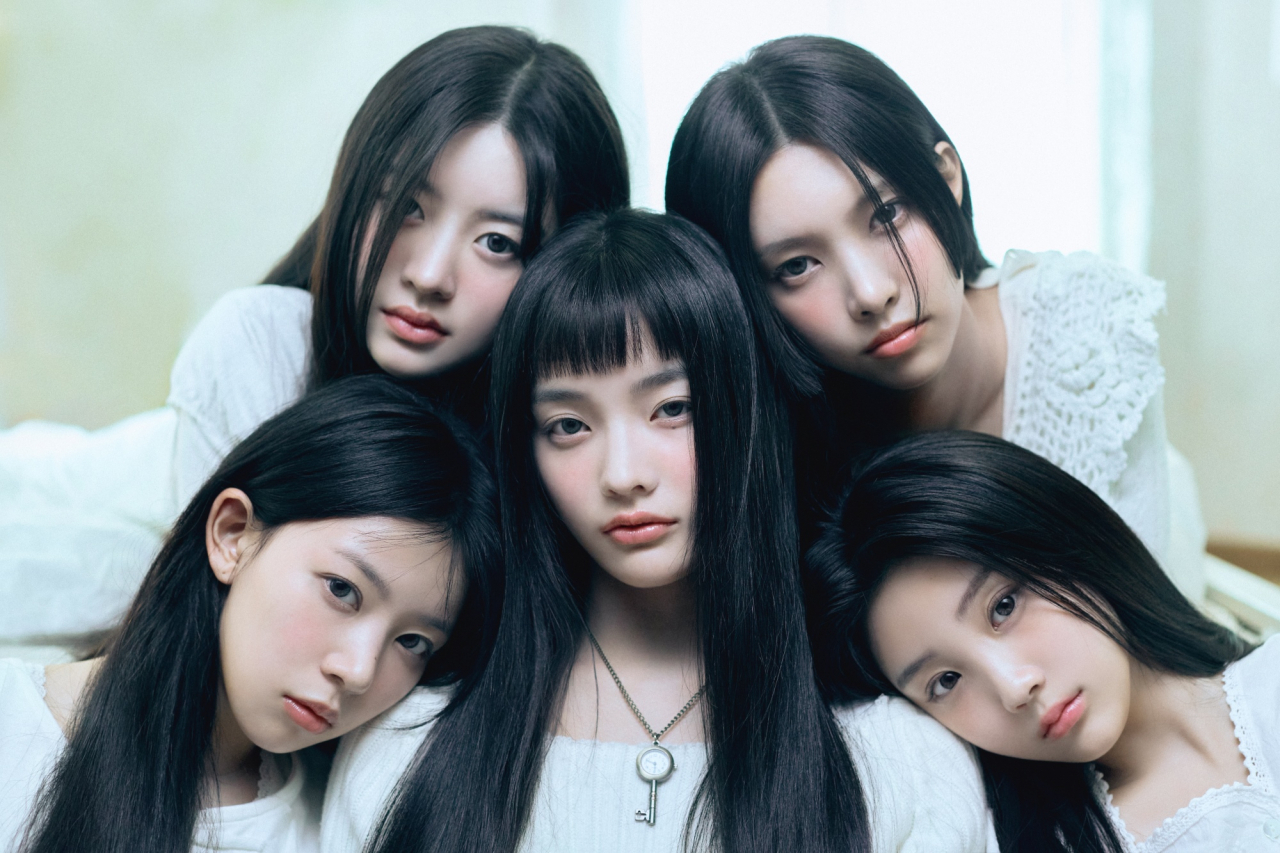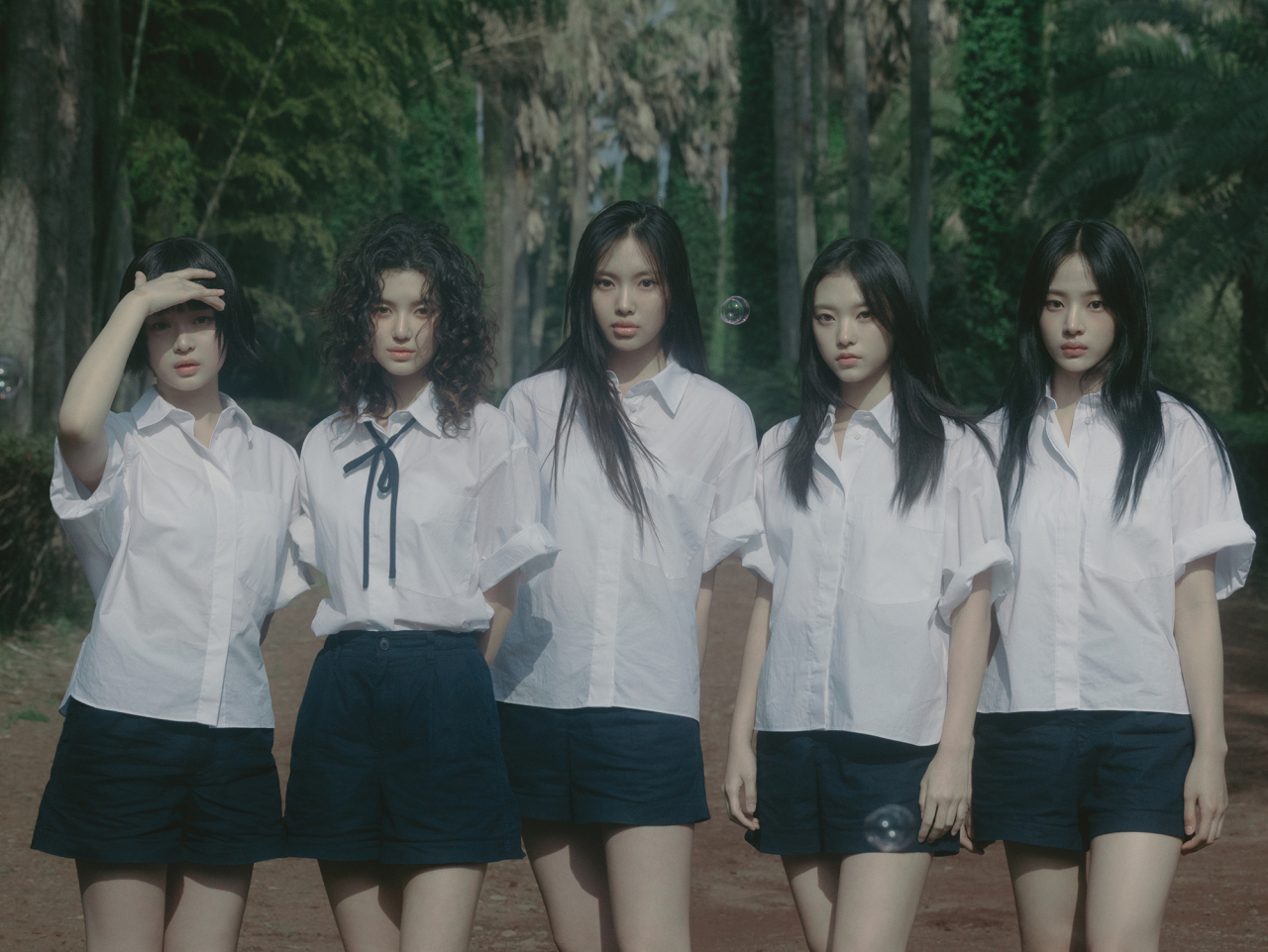 |
Illit (Belift Lab) |
With its total assets reaching over 5 trillion won ($3.7 billion) last year, K-pop giant Hybe, which launched as Big Hit Entertainment in 2005, is looking to claim “large-firm” status.
In 2019, Hybe acquired its first subsidiary label, Source Music, aspiring to become a global multi-label entertainment company. Today, Hybe has 11 subsidiaries under its label division, including Big Hit Music, housing the global K-pop sensation BTS; Pledis Entertainment, housing the globally renowned Seventeen; and Ador, housing NewJeans.
Hybe’s ambition to catch up with the world's leading record labels with multi-labels such as Universal Music Group, Sony Music Entertainment and Warner Music Group, however, has led to criticisms over the originality of its products.
Multi-label system under scrutiny
In the K-pop industry, the multi-label system is used to quickly reproduce successful models, tweaking them slightly, rather than preserving each label's unique musical color and identity.
“A multi-label system should be like a palette in which diverse colors exist to not only reduce business risks but also to enlarge the pie. The recent conflict between Hybe and Ador which raised questions about Illit’s originality shows that Hybe's multi-label system is rather like a conveyor belt mass producing success models,” said music critic Lim Hee-yoon.
“K-pop agencies, these days, focus on reproducing similar IPs that the public likes. This is why the scope of K-pop music is very limited. It’s like they have a proven formula to stardom as a guide to what music, choreography and visual concept to showcase,” said Lee Dong-yeun, a professor at the Korea National University of Arts.
An advantage of having a multi-label system is that there is no gap between new album releases, which are major revenue sources.
For Example, Hybe has released new albums by Le Sserafim from its subsidiary label Source Music, TXT from Big Hit Music and BoyNextDoor from KOZ Entertainment so far this year.
It also launched Illit, a girl group under its subsidiary Belift Lab, and boy group TWS under another subsidiary Pledis Entertainment.
However, such a breakneck-speed working environment makes it difficult for the subsidiary labels to build their individual colors.
“Music producers, artists and others working in the K-pop industry are always hounded by deadlines because they have two to three comebacks to prepare in a given year. This gives them at most three months to come up with new songs, choreography and promotion which is why the artists cannot escape plagiarism allegations," said Kim Do-heon, a music critic. “They have no choice but to follow the lead of a successful IP. The K-pop industry needs to allow the freedom to fail in order to come up with something new and creative.”
This is quite different from how K-pop agencies operated until the early 2020s.
Before, the major labels SM, JYP, and YG were led by chief producers Lee Soo-man, Park Jin-young and Yang Hyun-suk, respectively.
Such business management helped establish a unique music style for each K-pop agency.
This explains why Babymonster, a new girl group from YG, is not criticized over conceptual similarities to Blackpink, a widely acclaimed K-pop girl group also from YG.
“The sub-label that launched Illit is Belift Lab which houses the successful K-pop boy group Enhypen. Yet, Illit was promoted as the ‘youngest daughter of Hybe' before debut. If Hybe wanted to help Belift Lab establish its own musical color as a record label, Illit should have been promoted as the ‘sister group of Enhypen’ instead," said Lim. "Parent companies need to trust in their sublabels and let them experience their music,” Lim added.
 |
NewJeans (Ador) |
Future of multi-label system
It’s ironic how, just when Hybe’s multi-label system is being tested, SM Entertainment is launching a business project centered on establishing its own multi-label system dubbed “SM 3.0.”
In fact, SM Entertainment announced Tuesday that it has launched a new label, Krucialize, to focus on creating contemporary R&B music in an effort to expand the spectrum of K-pop.
SM currently has three sub-labels: SM Classics which creates orchestral versions of K-pop music, a dance music record label ScreaM Records and Krucialize.
“SM is also trying to reorganize its business structure to focus on augmenting IP revenue with timely production. But their sub-labels focus on enhancing the infrastructure and resources in creating SM artists' albums rather than producing different artists under its sub-labels,” said Kang Hye-won, a visiting professor at Sungkyunkwan University.
Industry insiders agree with the idea that the individuality of each label should be respected and that the parent company should act as a coordinator between different sub-labels to support them equally.
“It’s now or never for K-pop labels to work on their originality and creativity to make K-pop sustainable. They need to think about what to improve and resolve to create such an environment,” said Lee.







